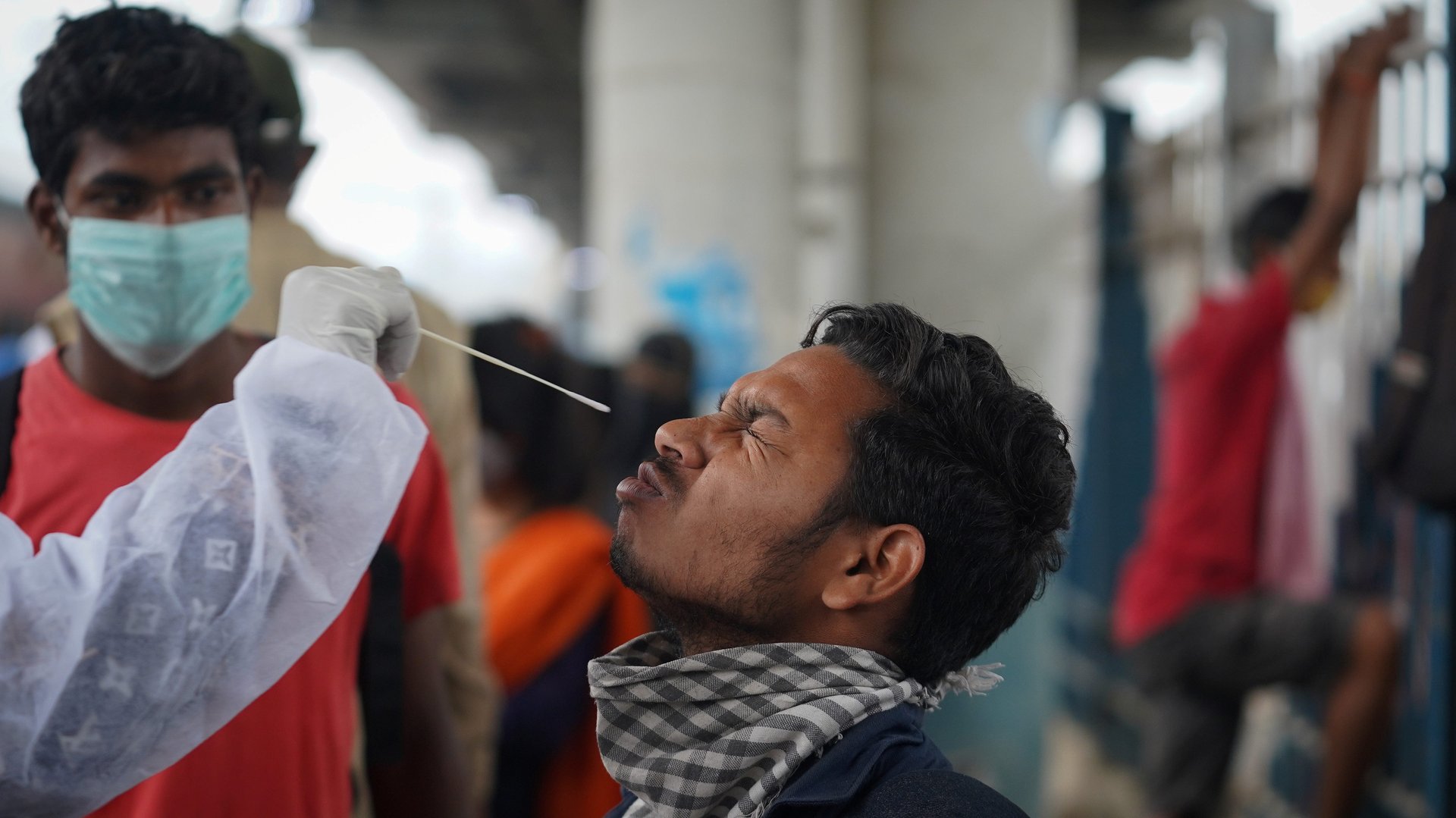India’s omicron cases show the variant was global even before the travel bans kicked in
India now has two confirmed cases of the omicron coronavirus variant.


India now has two confirmed cases of the omicron coronavirus variant.
The country’s health ministry yesterday (Dec. 2) said the two were detected in the southern state of Karnataka. Curiously, one of the men who tested positive had no travel history. This cements the view that omicron may already be a globally spread variant of concern, possibly even before the variant was detected and named. The World Health Organization said as many as 23 countries already have cases of the variant.
While the Indian health ministry only gave out the age and gender of the two positive cases, the municipal body in Bengaluru, home to India’s Silicon Valley and the capital of Karnataka, offered more granular information.
One of the two infected is a 66-year-old-man who had travelled from South Africa to India on Nov. 20 and whose sample had been collected at the Bengaluru airport. He was isolated at a hotel on testing positive but remained asymptomatic through his stay in India.
His sample was sent for genome sequencing on Nov. 22, and his repeat covid-19 test turned up negative on Nov. 23. This man was fully vaccinated and left Bengaluru for Dubai on Nov. 27.
All 24 of his primary contacts were traced, found to be asymptomatic, and their tests were negative.
But the second omicron case in India is more worrying.
India’s omicron case with no travel history
The other person who tested positive for the omicron variant was a 44-year-old man with no international travel history.
The Bengaluru-based doctor had developed fever and fatigue symptoms on Nov. 21, and tested positive for covid-19 the next day. While not all samples are sent out for sequencing, the results showed a low cycle threshold (Ct) value, a marker that the patient is still infectious and possibly at risk of developing moderate or severe illness.
On Nov. 25, he was hospitalised and discharged three days later. It was later revealed that this covid-19 case was because of omicron.
The doctor noted 13 primary contacts and 205 secondary contacts during the course of his illness. Of these, five tested positive for covid-19 but the omicron strain was not confirmed.
The timelines of both these cases raised the all-important question of whether omicron’s global spread can be prevented.
Omicron may already be global
The strain was first detected in Botswana and South Africa in early November and was reported to the World Health Organization (WHO) as a variant under monitoring on Nov. 24.
By Nov. 26, the WHO had escalated what was then called the B.1.1.529 strain to a variant of concern, and assigned it the Greek alphabet omicron. Both the cases detected in India were before omicron’s existence was known to the world outside of the science community.
This is similar to the Netherlands, which has now become the largest cluster of omicron cases outside of southern Africa.
Dutch officials found that two covid-19 cases with this new strain had tested positive between Nov. 19 and 23, before South Africa made its findings public.
This reiterates the point that scientists and the WHO have been trying to make about travel bans: While they may work in the early stages of the pandemic, travel bans may be redundant when the mutated virus has already spread beyond its country of origin. Instead, strict testing and vigilant contact tracing are more fruitful in preventing large outbreaks.